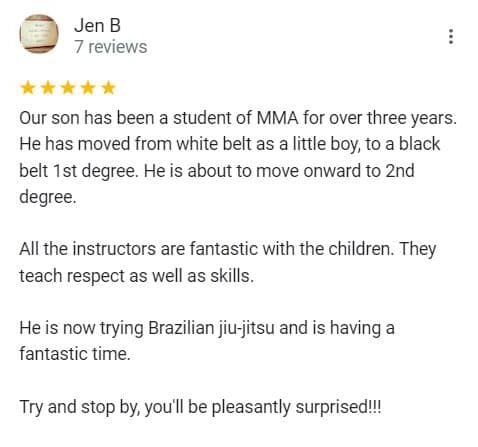Timonium's Best Martial Arts SCHOOL
Find out why so many people in Timonium turn to Maryland Martial Arts for their martial arts training. Parents just like you have discovered how to maximize their child's potential and accelerate their development! Request more information or get started today with our exclusive online only offer!
- Timonium members have seen improvements in as little as 7 days!
view our schedule
and gain access to our exclusive web special
By opting in, you agree to receive periodic text messages & emails from Maryland Martial Arts. Your information will never be shared. Reply STOP to cancel. Standard rates may apply. View our Terms of Service & Privacy Policy.
Preschool Martial Arts
in Timonium
The perfect blend of building gross motor skills and having TONS of fun! Our preschool martial arts program in Timonium gives your little one the tools they need to prepare for school and life.
- DISCOVER -
- DISCOVER -
Kids Martial Arts
in Timonium
Our kids martial arts program in Timonium gives your child the tools they need to protect themselves with self defense, but it also equips them with incredible life skills like focus, discipline, respect, and more! Watch them improve in school, too!
- DISCOVER -
- DISCOVER -
Teen Martial Arts
in Timonium
The ultimate tech alternative that gets teens active and engaged- and helps them feel confident, too. Help your teen make friends and get off their screens with our teen martial arts classes in Timonium!
- DISCOVER -
- DISCOVER -
Adult Martial Arts
in Timonium
Great friends, great fun- crush your fitness goals with our adult martial arts classes in Timonium. Learn self defense skills and martial arts together while having a ton of fun. No more boring workouts!
- DISCOVER -
- DISCOVER -
Birthday Parties
in Timonium
Stop trying to reinvent the wheel, Birthday parties should be fun, not a ton of work! Enjoy watching your kids have fun!
- DISCOVER -
- DISCOVER -
why CHOOSE Maryland Martial Arts?
Since we’ve opened, we’ve been dedicated to changing the lives of people one person at a time, through martial arts, education and coaching. We strive to provide a safe, comfortable and welcoming atmosphere for all students and family members in Timonium. We take pride in creating an environment for individuals to achieve, develop and succeed in their personal goals.
We strongly believe that martial arts can be for everyone, regardless of age, gender or experience levels. Throughout all of our programs, students will not only learn the necessary skill sets to protect themselves, we stand behind our realistic and practical approach, confident it will enable every member to achieve greatness and live their best life.

About our programs
Preschool Martial Arts
in Timonium
Discover why parents love our Preschool Martial Arts Program in Timonium. It's the perfect blend of gross motor skills, personal development, and character enrichment, and gives your little one an edge when they enter a busy school setting.
- DISCOVER -
- DISCOVER -
Kids Martial Arts
in Timonium
Parents LOVE our Timonium Kids Martial Arts program because it teaches not only self defense, but also vital life skills like focus, discipline, respect, and more! Watch your child's confidence flourish and their grades improve with this awesome Child Greatness program.
- DISCOVER -
- DISCOVER -
Teen Martial Arts
in Timonium
Combining confidence-raising fitness and life-changing self defense, our Timonium Teen Martial Arts program keeps your teen's wellness and happiness in mind. It's time to get your teenager active, making new friends and bettering themselves.
- DISCOVER -
- DISCOVER -
Adult Martial Arts
in Timonium
Our Timonium Adult Martial Arts program combines next-level fitness with next-level FUN- no more boring workouts! It's time to switch up your routine and get the results you've been looking for in an awesome community of like-minded people.
- DISCOVER -
- DISCOVER -
Birthday Parties
in Timonium
When we say we have the best birthday parties in Timonium, we mean it. Give your child the perfect party, while you enjoy a stress free day. Your child will thank you later, we guarantee it!
- DISCOVER -
- DISCOVER -
Frequently Asked Questions
Most frequent questions and answers about our Martial Arts Programs
We find that our students become more confident to stand up to bullies and have more humility and kindness to others through their martial arts lessons.
We encourage parents to watch their children in their kids martial arts lessons. We love parents getting involved! And so do their kids. Even better… join into some of our martial arts classes for adults. Your kids will love that you have something in common. It will build a strong family bond!
Additionally, if you wanted some ‘me-time’? Simply drop them off, and go grab a coffee. They will greet you with a huge smile when you return, because they had SO much fun!
No, not at all! We find that people start at varying fitness levels. But, you will find that you do get fit by doing our Timonium martial arts classes. Isn’t that the point though? A fun workout that gets results!
Truthfully, the journey to black belt is an individual one. Everyone can progress at a different pace. There is no judgement on students for how long it does take. What we can tell you, is that it is SO WORTHWHILE!
The self defense skills you will master can truly be life-saving!
However, the other benefits of striving for black belt, like perseverance, never giving up, commitment and self discipline lead to life-long success.
You will find that your instructors at Maryland Martial Arts Timonium are dedicated to helping you on your journey to black belt or whatever your personal goal may be.
We do only have a certain amount of space in our martial arts training area. Take advantage of our limited time offer… The fastest way is to fill in the form.
Additionally, you can always call us, we would love to chat with you about what we do, and if our Timonium martial arts classes would be a great fit for you and your family!
Make sure you wear comfortable clothes you can do sport in! Not really suitable to practice kicks in a skirt.😳
Be sure to bring a water bottle to your martial arts classes. You will find Maryland Martial Arts in Timonium has martial arts classes for kids and adults that are a great workout and lots of fun! Most students are grinning from ear to ear by the end of the class. I am sure you will be too!
Not at all. In fact, many students starting in our adult martial arts classes would describe themselves like that before they started. So you will fit right in!
Give yourself some time, and you will be astounded at how much you improve! You’ll find that our very experienced martial arts instructors, are trained to keep their teaching simple. So even the most uncoordinated person will develop ‘ninja-like’ skills! Come see for yourself!
Maryland Martial Arts
Timonium
We’re located at 1850 York Road Suite G, stop by and say hello!





